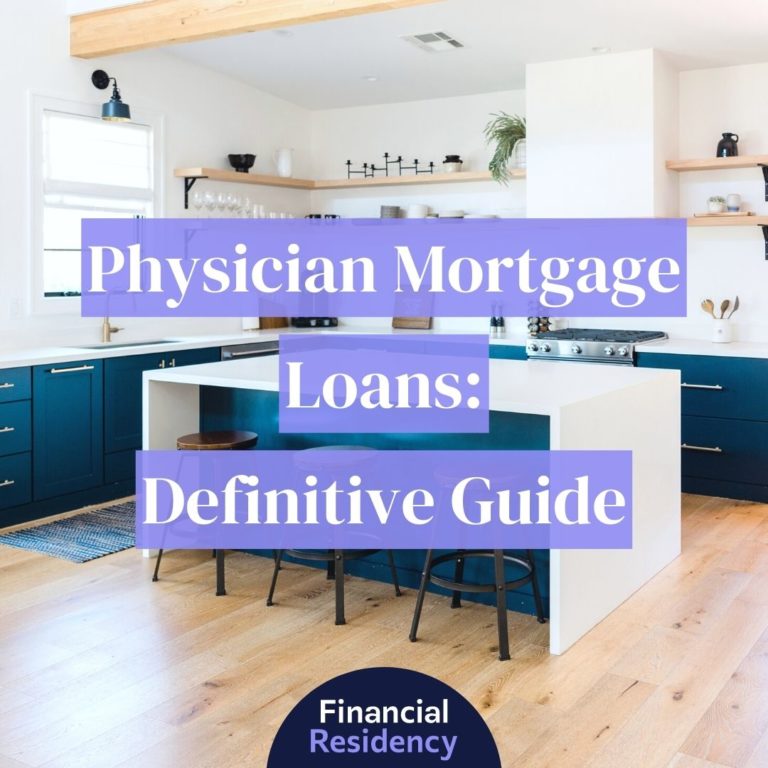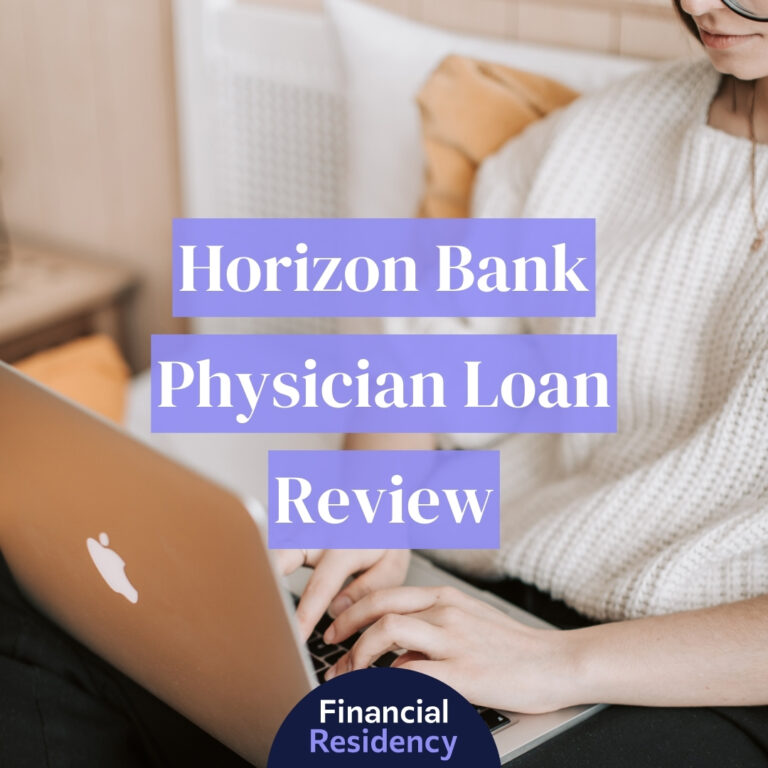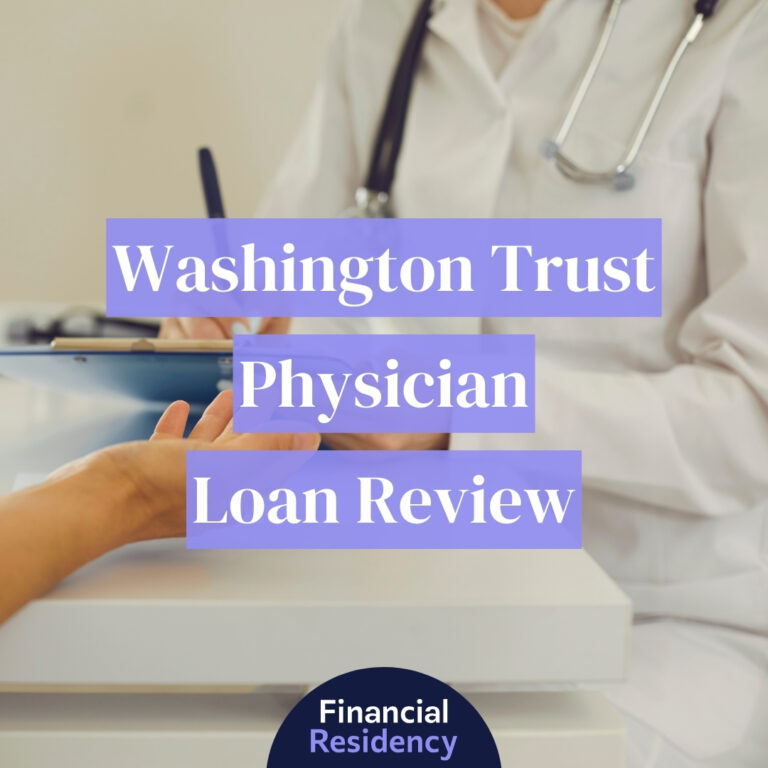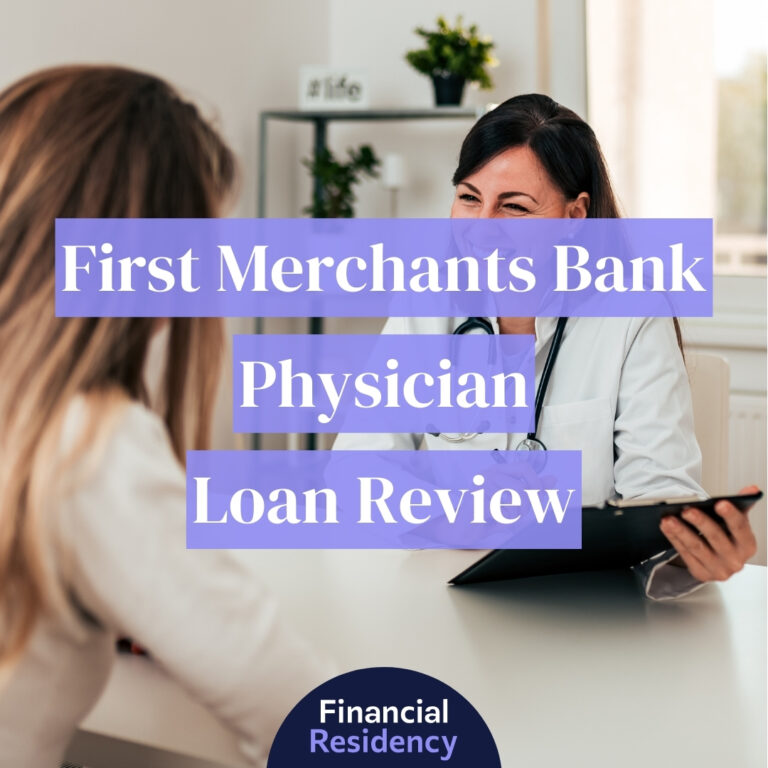If you want to join the 12,850 practicing physicians practicing in Oregon, homeownership can be more attainable with a physician home loan. Finding a physician home loan in Oregon is an essential tool for your upcoming move or refinance in The Beaver State.
Oregon may be famous for its unparalleled scenery, but it’s also a place for a thriving medical career. Whether it’s your residency program, a new job as an attending, starting a private practice, or moving closer to your family that takes you to Oregon, a physician mortgage can help you overcome the barriers medical professionals face in the housing market.
It’s important to work with a lender who has the experience necessary to find you the best physician loan programs in Oregon. If you’re eying a future move to Oregon, then doing your research now can ensure a smooth process from start to finish.
If you’re ready to find the best doctor home loan in beautiful Oregon, then trust one of our experienced lenders to guide you to your dream home. We’ve thoroughly vetted each lender’s mortgage program and identified the call-out features to inform your decision.
8 Best Oregon Physician Home Loan Lenders
Here are the top physician mortgage loan lenders in OR:
Discover The Best Lenders in Oregon Answer just a few questions about your career, where you're buying, and how much you want to borrow. Our service will then show you the exact programs you're eligible for from vetted physician loan specialists who will guide you through every step of the process – obligation-free!
1. BMO Bank
- BBB Grade: A+
- JD Power Score: 805
BMO Bank, formerly known as BMO Harris Bank, extends its Physicians’ Mortgage Program to residents, fellows, medical doctors (MD), doctors of osteopathic medicine (DO), doctors of dental surgery (DDS), and doctors of dental medicine (DMD).
Loans may be used to purchase or rate/term refinance a 1-2 unit property, single-family home, condominium, or townhouse.
The program will offer down payment options as low as 5% of the home’s purchase price to doctors within the first 10 years of their careers, but later career medical professionals will need to put down at least 10%.
The bank will provide up to $1.5 million in financing with a 5% down payment or up to $2 million with a 10% down payment.
All down payment options exclude private mortgage insurance (PMI), which can save borrowers thousands of dollars over the loan term.
BMO Bank will also be flexible when calculating debt-to-income (DTI) ratios so that early-career medical professionals are more likely to qualify.
The program will work with physicians who are starting new jobs by accepting employment contracts that start within 90 days of closing.
Borrowers can choose between fixed-rate and adjustable-rate mortgages based on their creditworthiness.
A $500 closing cost discount may be available to borrowers who open an eligible BMO Bank account.
Learn More:
2. Citizens Bank
- BBB Grade: A+
- JD Power Score: 818
Citizens Bank extends its doctor loan program to physicians and dentists, including residents, fellows, and interns. The program will extend a maximum of $1.5 million in financing to qualified borrowers.
Loans up to $850,000 can be secured with a 5% down payment, but loans up to $1 million will require at least 10% down. Loans up to the maximum of $1.5 million will require at least 15% down.
The PMI requirement is waived.
The program will even provide financing for medical professionals interested in building a new home.
Student loan debt deferred for more than 12 months won’t be used to calculate creditworthiness, but borrowers may also use their actual monthly payment amount for those on income-driven repayment plans.
Like BMO Bank, borrowers may be eligible for additional discounts if they open a qualifying Citizens Bank account.
Learn More:
3. Evolve Bank & Trust
- BBB Grade: B
- JD Power Score: N/A
Evolve Bank & Trust is more inclusive of a variety of medical professionals compared to other physician loan programs. It will provide special financing options to residents, fellows, and the following medical designations:
- MD
- DO
- DDS
- DMD
- PA
- NP
- DVM
- CRNA
- DC
- OD
- DPM
- PharmD
- Clinical Nurse Specialists
The program is specifically designed for individuals within the first 10 years of their careers, so later career medical professionals won’t be eligible.
The following down payment options are available:
- 0% down on loans up to $1 million
- 5% down on loans up to $1.25 million
- 10% down on loans up to $1.5 million
- 15% down on loans up to $2 million
Like other physician loan programs, PMI is not required. Loans may be used to purchase a 1-2 unit family home, condominium, or new construction.
Underwriters will make exceptions on an individual basis, but they will work with aggressive debt-to-income ratios and lower credit scores than their competitors.
Gift funds will be allowed as well as non-occupant co-signers. Minimum reserves may be required but there may be discounts on closing costs.
There’s a dedicated team for processing physician loans, so borrowers can be confident their application is in the hands of experienced and knowledgeable loan officers.
Learn More:
4. Huntington Bank
- BBB Grade: A+
- JD Power Score: 821
Huntington Bank designed its physician mortgage loan program around the needs of MDs, DOs, DMDs, DVMs, and DDSs.
Borrowers will be required to prove they have sufficient income and cash reserves to qualify, but future-dated employment contracts may also be accepted.
Minimum cash reserve requirements will depend on credit approval and the amount borrowed.
The program has a maximum loan amount of $2 million, but borrowers can only secure 100% financing for loans up to $1 million. All down payment options exclude PMI requirements, which can reduce the monthly payment amount compared to a conventional loan of the same amount.
There is no penalty for prepayment, which can be a great option for physicians who eventually want to be debt-free.
Loans may only be used for the purchase or refinance of a primary residence. Cash-out refinances are limited to $250,000 cash.
Borrowers may choose between fixed and variable-interest mortgage options.
Learn More:
5. KeyBank
- BBB Grade: A+
- JD Power Score: 794
KeyBank’s Medical Professional Mortgage Program is open to doctors and dentists at any stage of their careers. Unlike other physician loan programs, it does not have an age limit, but retired doctors won’t be eligible. The following medical designations are accepted:
- MD
- DO
- DPM
- DDS
- DDM
KeyBank boasts the most generous loan amounts on this list. The program will lend up to $3.5 million with fixed or variable interest. Loans may be used to purchase, rate/term or cash-out refinance.
Borrowers will have to put down a minimum of 5% of the home’s purchase price, but PMI is not required.
Unlike many physician loan programs, KeyBank will provide financing for the purchase or refinance of a primary residence or a second home.
Eligible property types include one-unit single-family homes, condominiums, and planned unit developments.
The loan officers are trained to provide personalized service, where they will walk eligible borrowers through their available rates, loan products, terms, and benefits.
Learn More:
6. U.S. Bank
- BBB Grade: A-
- JD Power Score: 820
U.S. Bank extends its physician loan program to MDs and DOs, including residents and fellows. Borrowers will need to have a 710 credit score to qualify for the program.
The program will lend up to $2 million with down payment options ranging from 5 to 15%. Loans up to $1 million require a 5% down payment. Loans up to $1.5 million require a 10% down payment and loans up to $2 million require a 15% down payment.
PMI is not required.
Borrowers who open a platinum checking account can save 0.25% of their loan amount up to $1,000. This lender credit can reduce closing costs.
Student loans are treated leniently. For borrowers in deferment, 2% of the total loan balance will be used. For borrowers on income-driven repayment plans, the actual monthly payment will be used to calculate the DTI ratio.
Learn More:
7. Alerus
- BBB Grade: A+
- JD Power Score: N/A
Alerus’ Doctor Loan Program is aimed at medical doctors currently in residency and those who have been practicing for up to four years.
The program will provide 100% financing for loans up to $750,000. The lender will provide 95% financing for loans up to $1 million and 90% financing for loans up to $1.5 million.
Alreus also provides a compelling $20,000 Guarantee, which allows doctors to make competitive offers.
The $20,000 Guarantee is a vote of confidence from the lender to the seller that it will be $20,000 if the loan doesn’t close according to the terms in the pre-approval letter.
Borrowers will be eligible for fixed and adjustable-rate mortgage options.
Learn More:
8. Bank of America
- BBB Grade: A+
- JD Power Score: 791
Bank of America’s physician loan program is available to medical professionals with an MD, DDS, DMD, OD, DPM, or DO degree. Research doctors and professors are not eligible, but residents and fellows are.
Applicants must be employed full-time in a salaried position or have a signed contract to start employment or residency within 90 days of closing. If borrowers don’t begin working until after closing, they’ll need to have sufficient cash reserves to fulfill all debt obligations during that time.
The lender requires 4 to 6 months of cash reserves, depending on the loan amount. Underwriters will often exclude student loan debt from debt-to-income calculations, but evidence of deferred payments will be required.
The following down payment options are available, all of which exclude PMI:
- 3% on loans up to $850,000
- 5% on loans up to $1 million
- 10% on loans up to $1.5 million
- 15% on loans up to $2 million
Learn More:
How Physician Mortgage Loans Work in Oregon
Physician loans work by allowing early-career medical professionals, usually medical doctors and dentists, to pursue homeownership without the typical obstacles. These obstacles include limited employment history, minimal savings, high debt, and relocating for a job.
Physician loans in Oregon circumvent these obstacles by approving borrowers based on their earning potential. Doctors are likely to earn six-figure salaries at their peak earning potential, so lenders see them as less likely to default on their loans.
Flexibility with Employment
As such, underwriters are more willing to approve borrowers starting new employment as long as they are able to provide proof of a fully executed employment contract. This flexibility can make it much easier for upcoming physicians to establish permanent roots in the communities they serve while providing stability for their families.
Lower Down Payments
Minimal savings can also make it difficult to come up with the necessary down payment and associated fees. Physician loan programs minimize this burden by providing high loan-to-value approvals and reducing the required down payment to as low as 5–15% of the home’s purchase price.
No PMI
Physician mortgages don’t require private mortgage insurance either. PMI is an extra fee added to monthly payments for borrowers who have less than 20% equity in their homes. This fee typically falls between 0.22% to 2.25%. Waiving this fee can keep monthly payments manageable for medical professionals, even with large loan amounts.
Flexibility with DTI
Because medical school and undergraduate education come with a high price tag, many students have to go into substantial debt to earn their education. Upon graduation, these students are met with six-figure debt that can put them outside the acceptable debt-to-income ratio underwriters require.
Physician loan programs are often willing to exclude, or redefine how they calculate DTI, so medical professionals can be approved for financing options.
Reserved for Only Primary Residences
While physician loan programs are more lenient in many ways, in other ways, they’re more strict than conventional mortgages. For example, conventional mortgages can be used to purchase any type of property, including rental and investment properties, whereas doctor loans are typically reserved for primary residences.
Higher Credit Score Required
Physician loans also require a higher credit score than other mortgage options. While FHA lenders will work with credit scores as low as 620, physician loans will often require a 700 minimum score. Some providers will work with borrowers with lower scores if they’re able to put down a larger down payment.
Pros and Cons
We wouldn’t be doing our due diligence if we didn’t present the pros and cons of physician loans in Oregon. Carefully weighing the positives and negatives of your financing options can ensure you choose the loan program that best fits your needs.
Consider the following pros and cons as you research mortgage programs in Oregon.
Pros
- Generous loan amounts: Doctor loans aren’t conforming loan products, so they are not limited to the loan limits set by Freddie Mac and Fannie Mae. Physician loan programs will finance up to a couple of million dollars for qualifying medical professionals.
- Buy with an employment contract: While conventional mortgages often require at least two years of income history, doctor loan programs will approve borrowers with an active employment contract that starts within 60–90 days of closing.
- No private mortgage insurance: Physician mortgage loans don’t require PMI, a fee often charged by conventional loan programs when the borrower has less than 20% equity in their home.
- Flexible with student loan debt: Doctor loan underwriting is flexible in its debt-to-income ratio calculations––often being particularly lenient on deferred student loan payments.
- Low down payment options: Physician loan programs will finance between 85 and 100% of the home’s purchase or refinancing costs, which minimizes many of the upfront costs for cash-poor medical professionals.
- Open to a variety of medical professionals: Contrary to the name, physician loan programs are open to a wide variety of high-income earners, including medical doctors, veterinarians, dentists, and podiatrists.
- Personalized home-buying process: Physician mortgage loan officers are knowledgeable about the unique financial needs and scheduling constraints of busy medical professionals so that they will provide a thoughtful and personalized home financing experience.
- Can be used to refinance: Doctor home loans can be used to access existing equity in your home through a cash-out or rate/term refinance. Refinancing terms will vary by lender.
Cons
- Higher credit score requirement: Physician loan programs often have a minimum credit score requirement of 700, but may require even higher scores to qualify for 100% financing.
- Often limited to a primary residence: Doctor loan programs are typically limited to the purchase or refinance of an owner-occupied primary residence.
- Adjustable-rate mortgages: Some physician loan programs are only available as adjustable-rate mortgages. Adjustable-rate mortgages start with a fixed introductory rate that later resets at the frequency outlined in the loan agreement.
- Still responsible for closing costs: Even with 100% financing, qualified borrowers will be responsible for closing costs and other fees.
Frequently Asked Questions
Do doctors get loans easily in Oregon?
Yes, doctors can get loans easily in Oregon if they qualify for a physician mortgage program. While doctors aren’t inherently more likely to get approved for a loan, working in healthcare has its share of benefits. Medical professionals, particularly doctors, are likely to earn high incomes over the course of their careers.
As such, they’re more likely to pay off student loan debt quickly and attract more business to the bank as they reach their full earning potential. For this reason, some mortgage providers are willing to offer a specialty loan product for doctors that eliminates some of the barriers they may encounter throughout the home-buying process.
What is the default rate for physician loans?
There is no default interest rate for physician loans. Like other loan programs, interest rates are set by the current market conditions and how the Fed responds to them.
In some cases, physician loan interest rates can be competitive with conventional mortgage programs, but at other times, they can carry a slightly higher interest rate to compensate for the additional risk lenders incur by offering more lenient qualifying terms.
What are the requirements for a doctor to qualify for a mortgage in Oregon?
The requirements for a doctor to qualify for a mortgage in Oregon include:
- Minimum credit score of at least 700
- Currently employed or an active employment contract beginning within 90 days of closing
- Sufficient cash reserves to cover down payment and closing costs
- Qualifying healthcare professional designation
- Purchasing a new home or refinancing an existing primary residence
- Have an acceptable DTI ratio, excluding student loan debt
What is the average home price in Oregon?
The average home price in Oregon is $485,475 in May 2023. More desirable urban centers like Portland have a higher average home price of around $540,000, while Albany has a lower average home price of around $410,000.
The average home price in Oregon pairs nicely with physician home loans because these mortgage programs can provide more generous loan amounts than conventional mortgages.
The generous loan amounts allow medical professionals to remain competitive in the current market, so they can confidently navigate the home-buying process.
Is there a difference in interest rates for doctors?
Yes, there is a difference in interest rates for doctors who use physician loan programs. Interest rates for these types of mortgage programs are often higher to compensate for the additional risk lenders take on by providing more lenient qualifying terms.
Many physician loan programs are also structured as adjustable-rate mortgages, which often incur more interest than fixed-rate mortgages.
However, a lot of physician mortgage loans don’t have prepaid penalties, so you can potentially lower your interest rate by paying down points or minimize accrued interest by paying off your principal balance early.
Who is a Physician Loan in Oregon Best For?
Sometimes getting yourself across the finish line of a big financial decision can be daunting, but identifying with others who have benefited from physician loans can help you decide if it’s the right loan option for you.
Upcoming residents relocating for a new job
Many residents will have to relocate to new areas of the country to confirm their training after graduating from medical school. While residency doesn’t always result in permanent employment, it is a long enough program that physicians may feel inclined to stop the cycle of renting and moving.
Because upcoming residents are unlikely to have the work and income history necessary to qualify for a conventional loan, physician loans can be a great option. Physician loan programs will approve borrowers who can provide proof of earning potential through an employment contract dated within 90 days of closing.
Self-employed dentists or veterinarians
Private practice owners stand to benefit more from keeping money within the business, especially in the early stages of growth. Doctor loan programs allow these self-employed professionals to keep more money focused on their business by lowering the down payment requirements.
Putting less than 20% down on a multi-million property can allow you to achieve your dreams of homeownership and entrepreneurship simultaneously.
Medical professionals with significant student loan debt
Student loan debt can be a major barrier to loan approval because it skews borrowers’ debt-to-income ratios. Physician loan programs will exclude deferred student loan debt or use the actual repayment amount for borrowers on income-driven repayment plans.
In some cases, physician loan underwriters don’t totally exclude student loan debt, but they may use a small fraction of the total balance during the credit approval process.
Early career healthcare providers who want to refinance
Physician loans aren’t only helpful for the purchase of a new home. For medical professionals who already own their homes, refinancing after earning their degree has its benefits. Physician loans can be used to rate/term or cash-out refinance.
Rate/term refinances can allow borrowers to lower their monthly payments by negotiating the loan with a lower principal balance or a lower interest rate. Cash-out refinances can allow early-career medical professionals to leverage their home equity to pay off debt, make home improvements, or take other steps to increase the home’s value.
Moving to a Different State?
Click on the state you are moving to and get the best physician mortgage loan lenders in that state:
Learn more about physician home loans.




